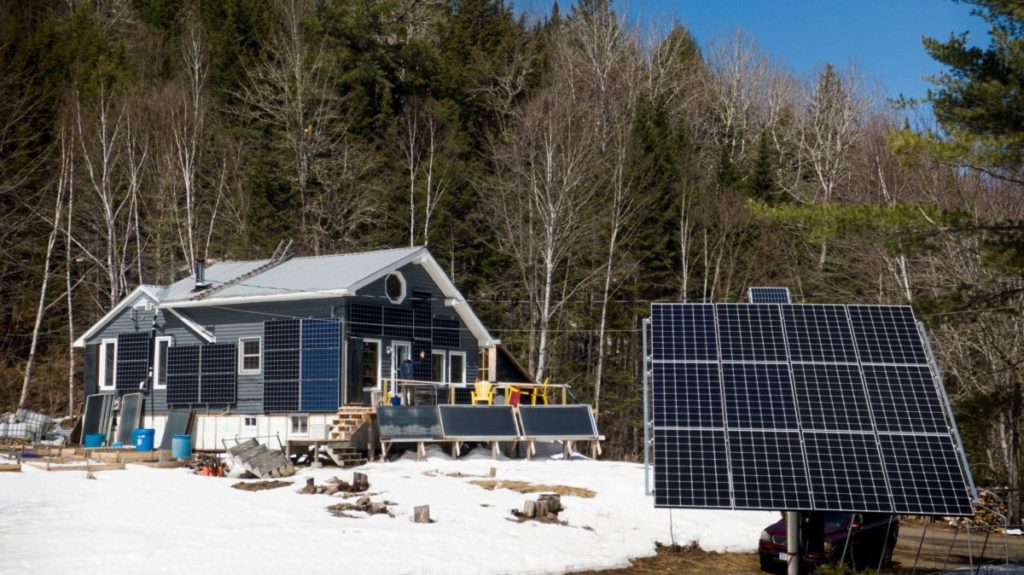If you’re looking to build an off-grid structure, securing the necessary permits is a critical step in ensuring your project runs smoothly and avoiding costly delays or legal issues.
As more individuals seek sustainable living options, local governments are becoming increasingly receptive to innovative building designs that prioritize energy efficiency and environmental stewardship.
However, navigating the permitting process can be complex and time-consuming without the right guidance.
In this comprehensive guide, we will provide you with practical tips, best practices, and real-world examples for securing permits for your off-grid structure, saving you both time and money in the long run.
Research the local building codes and regulations
Understanding the local building codes and regulations is important in determining what types of permits you will need and what requirements you will need to meet.
These codes and regulations are put in place to ensure that buildings are safe for occupants and meet certain standards for structural integrity, fire safety, accessibility, and other important factors.
Failing to comply with these regulations can result in costly fines, legal repercussions, and even project delays or shutdowns.
To determine what types of permits you will need and what requirements you will need to meet, it’s essential to research and familiarize yourself with the local building codes and regulations that apply to your project.
This may involve consulting with local authorities, such as your town or city’s building department, or hiring a professional to assist you with the permitting process.
You should carefully review the codes and regulations to ensure that your project complies with all requirements, as simply meeting the minimum requirements may not be enough to avoid issues down the line.
By understanding and adhering to local building codes and regulations, you can avoid costly mistakes and ensure a successful, safe, and compliant project.
Determine the type of permits needed
Based on your research, determine the type of permits you will need to secure, such as building permits, zoning permits, or environmental permits.
As a real estate developer, securing the necessary permits is a critical step in the development process.
Based on our research, we have determined that we will need to secure several different types of permits for our project, including building permits, zoning permits, and environmental permits.
Building permits are required to ensure that the construction of the project meets all relevant building codes and standards.
These permits are typically issued by the local building department, and they will need to be obtained before any construction can begin.
Zoning permits are required to ensure that the project is in compliance with all relevant zoning regulations and ordinances.
These permits are typically issued by the local zoning authority, and they will need to be obtained before any construction can begin.
Environmental permits are required to ensure that the project does not harm the environment or pose a risk to public health.
These permits are typically issued by the local environmental agency, and they will need to be obtained before any construction can begin.
It is important to note that the specific permits required for a given project can vary depending on the location and type of development.
Therefore, it is essential to consult with local authorities and obtain the necessary permits before proceeding with any development project.
By doing so, you can avoid costly delays and ensure that your project is completed safely and successfully.
Engage with local authorities
Meet with local authorities such as building inspectors, zoning officials, and environmental regulators to discuss your plans and obtain the necessary permits.
Before breaking ground on your new construction project, it’s essential to meet with local authorities to discuss your plans and obtain the necessary permits.
This includes building inspectors, zoning officials, and environmental regulators.
Building inspectors will help ensure that your design and materials meet current building codes and standards, which can help avoid costly delays and potential legal issues down the line.
Zoning officials will review your project to ensure that it complies with local zoning laws and regulations, which can help prevent issues with nearby property owners and avoid costly legal challenges.
Environmental regulators will assess your project’s potential impact on the environment and help you obtain any necessary permits to minimize that impact.
By meeting with these authorities early on in the process, you can ensure that your project is compliant with all relevant regulations and avoid potential delays or legal issues that could otherwise arise.
So, take the initiative and schedule meetings with these authorities as soon as possible to secure the necessary permits and approvals for your construction project.
Submit a detailed construction plan
Prepare a detailed construction plan that includes information on the structure’s size, location, and materials used. This will help officials understand your project and determine the necessary permits and requirements.
To ensure a successful and hassle-free construction project, it is essential to prepare a detailed construction plan that includes information on the structure’s size, location, and materials used.
This plan should not only provide a clear and accurate representation of the project but also include all relevant details that officials may need to determine the necessary permits and requirements.
Start by providing a detailed description of the structure, including its dimensions, layout, and elevations.
Include information about the location of the structure, such as the address, zoning restrictions, and proximity to any sensitive areas.
Specify the materials that will be used for the construction of the structure, including their quality, quantity, and expected lifespan.
The construction plan should also outline the construction schedule, including the expected start and completion dates, as well as any milestones or deadlines that need to be met.
This information will help officials understand the scope of the project and determine the appropriate permits and requirements.
Furthermore, the plan should include detailed information about the construction process, such as the sequence of events, the methods and materials that will be used, and any potential risks or hazards that may arise.
This will not only help officials understand the project but also provide a clear and detailed roadmap for the construction team to follow.
By including all of this information in a comprehensive construction plan, you can ensure that your project is well-organized, efficiently executed, and meets all relevant regulations and requirements.
This will help to minimize delays, reduce costs, and ensure that your project is completed on time and within budget.
Provide documentation
Gather all necessary documentation such as property deeds, survey maps, and proof of ownership to provide to local authorities.
To ensure a smooth and successful transfer of ownership, it is important to gather all necessary documentation prior to meeting with local authorities.
This documentation includes property deeds, survey maps, and proof of ownership.
Property deeds are legal documents that prove ownership of the property and should be obtained from the previous owner or from the local land registry office.
Survey maps are detailed maps of the property that show its boundaries and should be obtained from a licensed surveyor.
Proof of ownership can include utility bills, council rates notices, or other documents that prove the purchaser’s name and address.
It is essential to bring all of these documents to the meeting with local authorities to demonstrate clear ownership and avoid any potential issues or delays.
It is recommended to keep copies of these documents for future reference and to provide to the relevant authorities if needed.
Pay all required fees
Be prepared to pay fees associated with obtaining the necessary permits. These fees may include application fees, permit fees, and inspection fees.
When applying for permits, be prepared to pay various fees that are associated with the process.
These fees may include application fees, permit fees, and inspection fees.
Application fees are typically charged by the government agency responsible for reviewing and processing permit applications, and they can range from a few hundred to several thousand dollars, depending on the complexity of the project and the jurisdiction.
Permit fees are charged once your application is approved and the permit is issued, and they can be a one-time payment or an annual fee, depending on the type of permit.
Inspection fees are charged for each inspection that is conducted during the construction process, and they can range from $100 to $500 per inspection, depending on the complexity of the work being inspected.
It is important to budget for these fees carefully, as they can add up quickly and be a significant cost for your project.
Obtain necessary inspections
Once you have obtained the necessary permits, schedule inspections with local authorities to ensure that your structure meets all necessary building codes and regulations.
Once you have obtained the necessary permits, it is important to schedule inspections with local authorities to ensure that your structure meets all necessary building codes and regulations.
Building codes and regulations are put in place to protect the health, safety, and well-being of the public, and it is essential to adhere to these standards to avoid any potential risks or hazards.
Inspections will be conducted during different phases of the construction process, including foundation, framing, electrical, plumbing, and final inspections.
During these inspections, local authorities will review your structure’s compliance with building codes and regulations, such as the placement of electrical outlets, the installation of fire-resistant materials, and the adequacy of ventilation and lighting.
By passing these inspections, you can ensure that your structure is safe for occupancy and meets all necessary building codes and regulations.
Once you have obtained the necessary permits, you should schedule inspections with local authorities to ensure that your structure meets all necessary building codes and regulations.
Building codes and regulations are put in place to protect the health, safety, and well-being of the public, and adhering to these standards is essential to avoid any potential risks or hazards.
During these inspections, local authorities will review your structure’s compliance with building codes and regulations, such as the placement of electrical outlets, the installation of fire-resistant materials, and the adequacy of ventilation and lighting.
Passing these inspections ensures that your structure is safe for occupancy and meets all necessary building codes and regulations.
Maintain records
Keep detailed records of all permit applications, approvals, and inspections. These records may be required by local authorities or may be useful for future reference.
To ensure a smooth and successful renovation project, it is important to keep detailed records of all permit applications, approvals, and inspections.
These records not only serve as a legal requirement by local authorities, but also provide valuable information for future reference.
By maintaining a comprehensive record of all permits and inspections, you can easily track the progress of your project, identify any potential issues or delays, and ensure that all necessary steps are taken to meet local building codes and regulations.
These records can be useful for future reference, should you need to make changes or updates to your project.
For example, if you need to obtain additional permits or approvals in the future, having a detailed record of your previous permits and inspections can simplify the process and save you time and resources.
Overall, keeping detailed records of all permit applications, approvals, and inspections is an essential step in ensuring the success of your renovation project.
Want More? Dive Deeper Here!
Hey there! If you’re the type who loves going down the rabbit hole of information (like we do), you’re in the right spot. We’ve pulled together some cool reads and resources that dive a bit deeper into the stuff we chat about on our site. Whether you’re just killing time or super into the topic, these picks might just be what you’re looking for. Happy reading!






